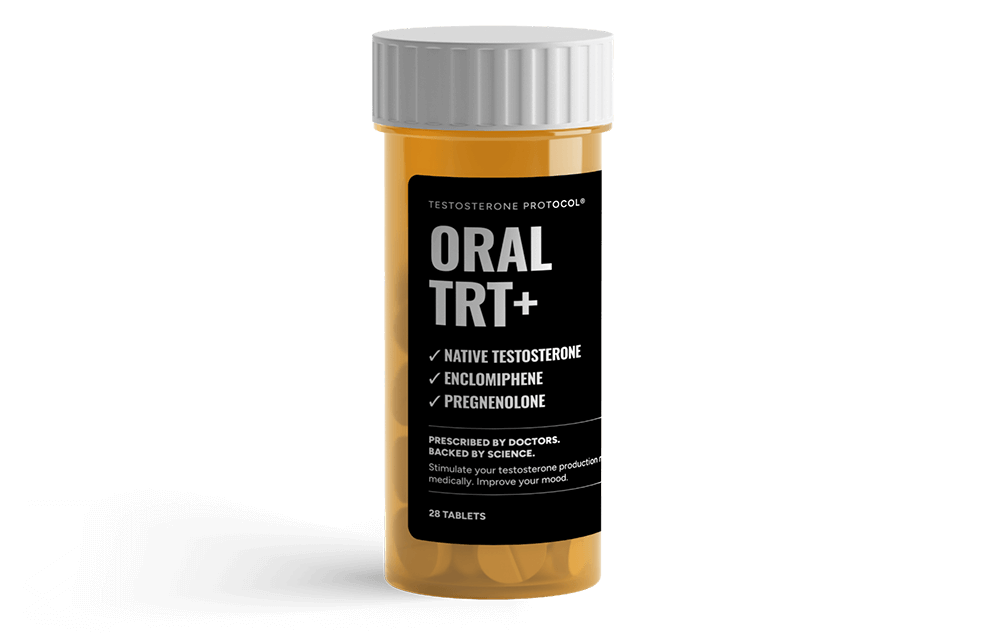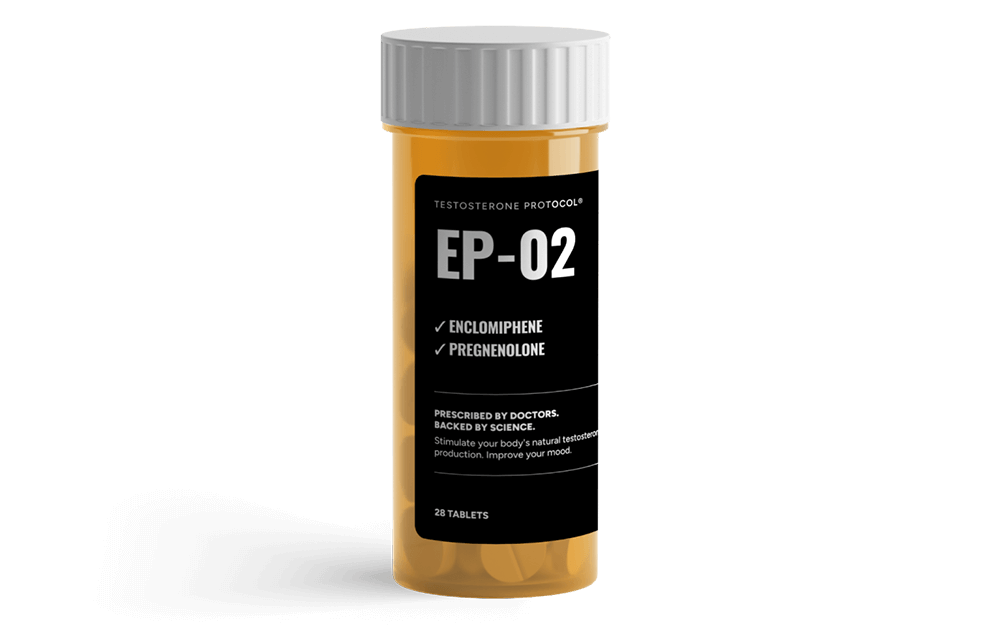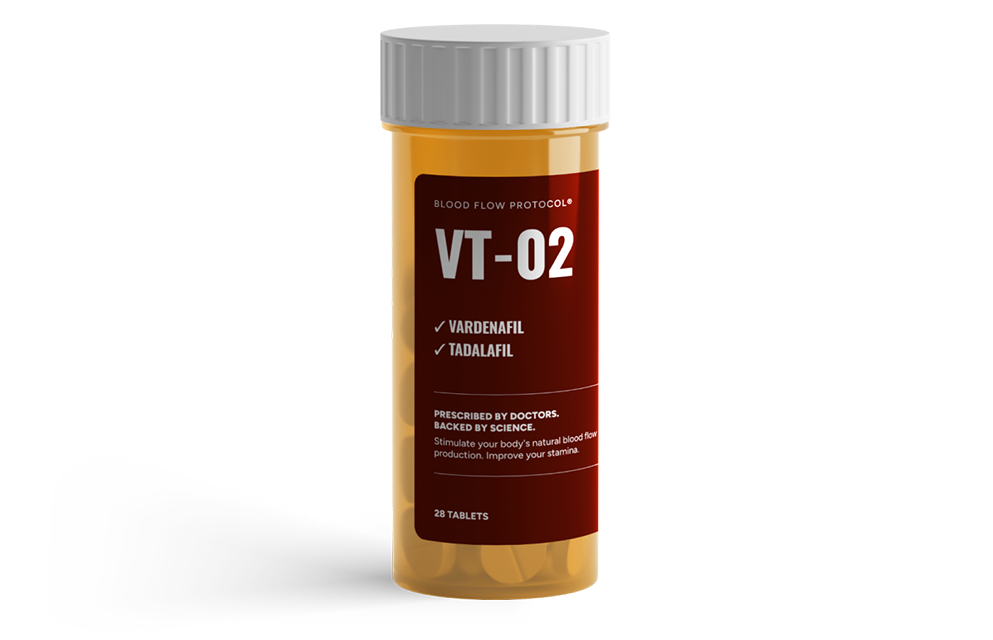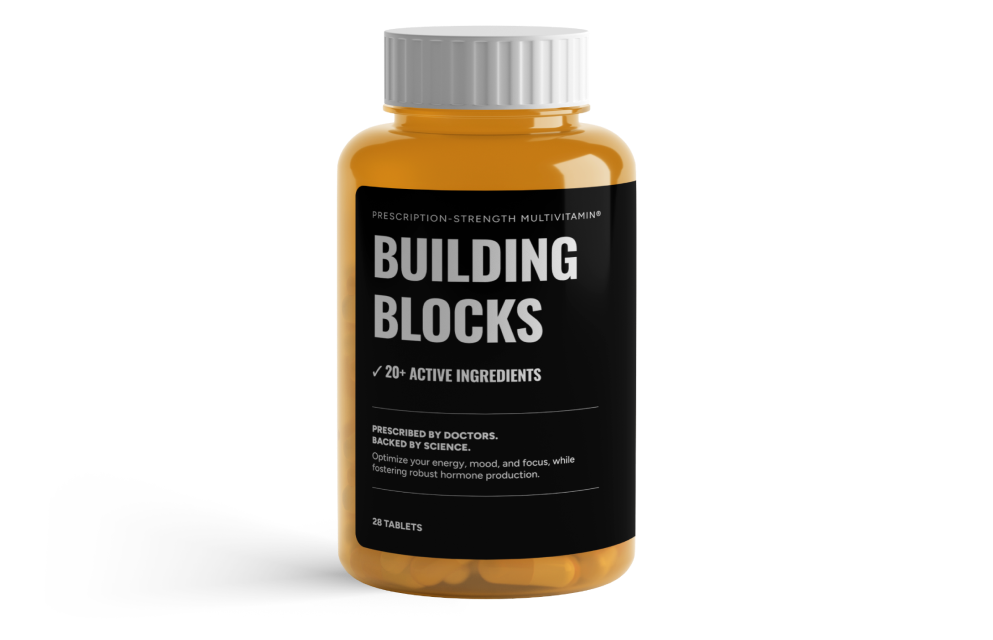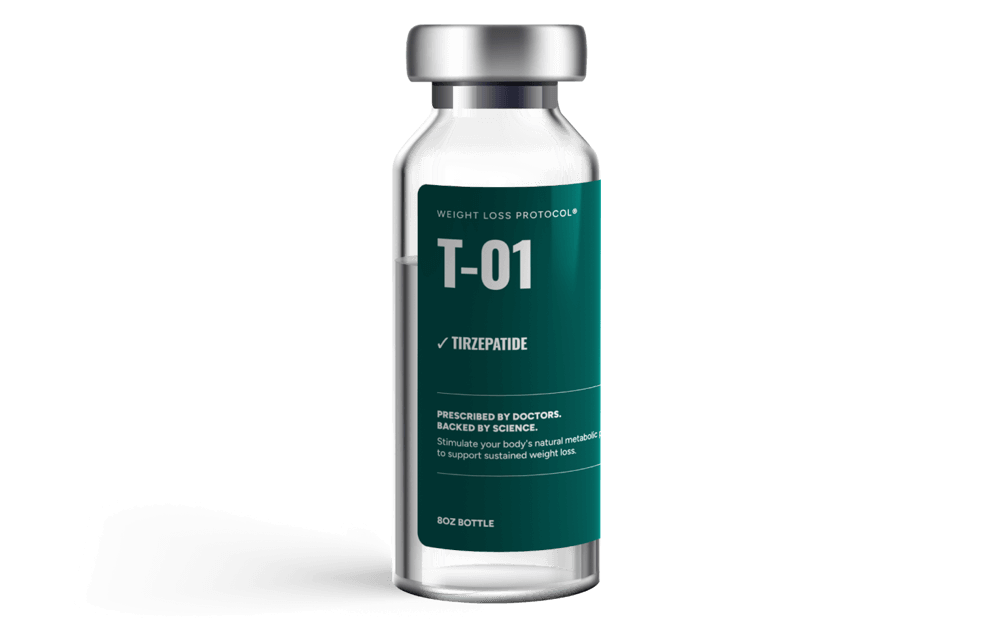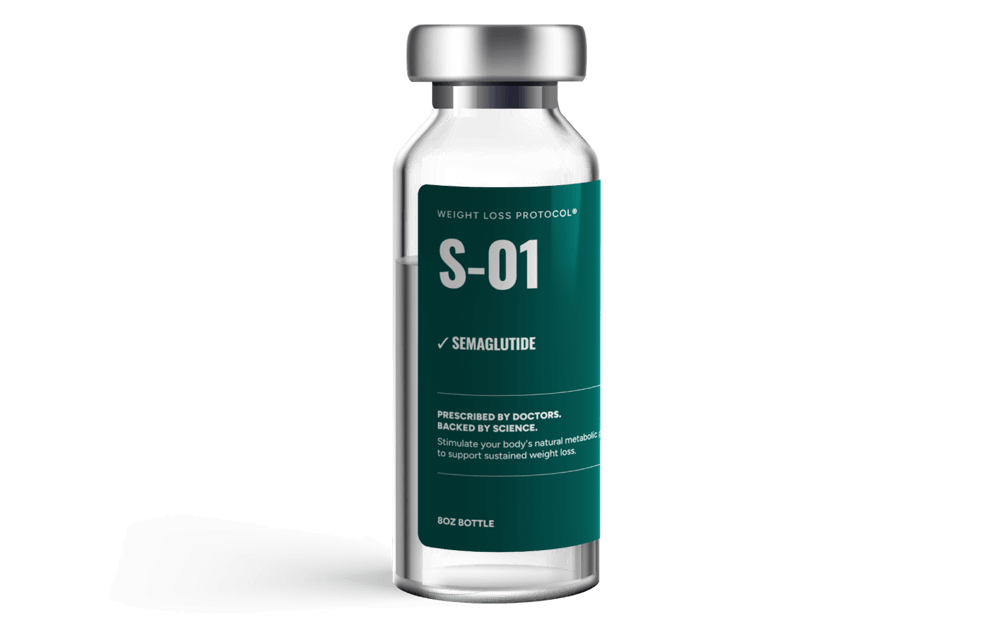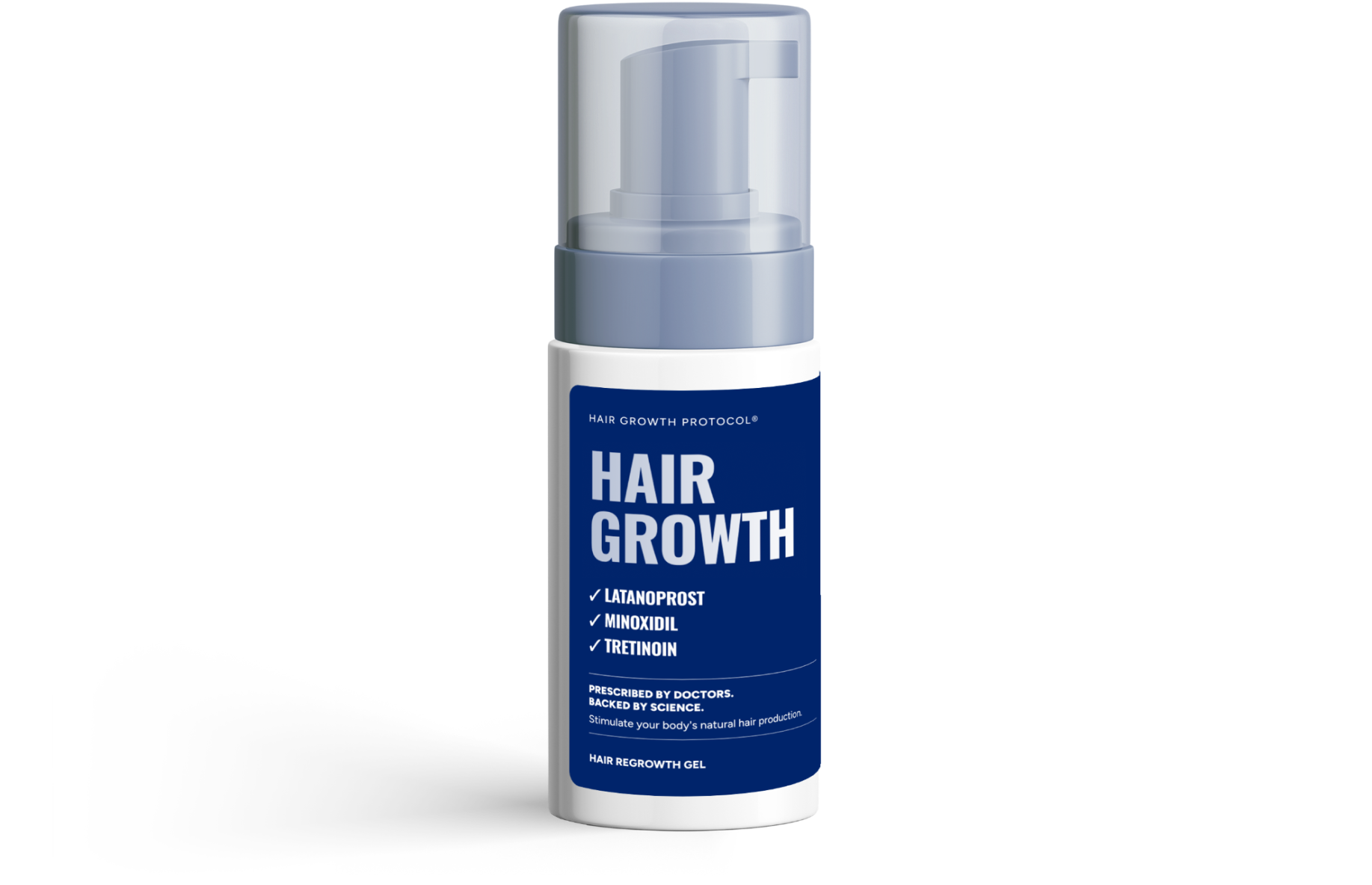Your body makes testosterone naturally through complex messaging between the brain and the testes. When the hypothalamus part of the brain signals the pituitary gland to secrete luteinizing hormone (LH) and follicle-stimulating hormone (FSH), these two gonadotropic hormones act on receptors in the gonads. LH, in particular, acts on the Leydig cells to increase testosterone production, while FSH promotes sperm production.
Despite its efficiency, this biological process can be disrupted by a number of factors, ranging from poor dietary choices to not getting enough sleep. Supplements can help get you back on track without the side effects associated with testosterone replacement therapy (TRT). But they can also help you optimize your body’s innate testosterone production, giving you an edge when it comes to your energy levels, muscle mass, and mood.
Explore the best testosterone supplements, why you should be wary of TRT, and other ways to boost your testosterone naturally.
Key takeaways:
- The best supplements to increase testosterone are vitamins and minerals like zinc, magnesium, vitamin D, and vitamin B6 which are all involved in testosterone synthesis. Vitamin E can also help improve hormone production.
- There are few studies that show supplements safely and clinically improve testosterone levels.
- If you’re looking for even more of a boost, pair your supplements with enclomiphene, a prescription capsule that helps your body make more testosterone by blocking estrogen.
Best supplements for boosting testosterone
It’s time we look beyond seeing TRT as the best testosterone booster. There are a number of vitamins, minerals, and herbs that can help support your body’s natural production of testosterone without the negative side effects of hormone therapy, like decreased fertility and testicular shrinkage. But keep in mind there is no supplement that can boost testosterone on its own. Supplements should be used to help address deficiencies of certain vitamins and minerals that may be hindering your hormone production. Find out what the research says about how these nutrients work.
Zinc
Zinc is a key mineral that helps to regulate your immune system and metabolism. There is also some evidence that zinc is a natural testosterone booster through its antioxidant action and steroidogenic enzyme interaction. In one study, zinc supplementation of marginally zinc-deficient normal elderly men for six months resulted in an increase in serum testosterone from 8.3 +/- 6.3 to 16.0 +/- 4.4 nmol/L, concluding that zinc plays an important role in modulating serum testosterone levels in normal men.
The recommended daily amount of zinc for men is 11mg, which can be achieved through supplementation or food sources like oysters, beef, liver, eggs, and beans.
Magnesium
Magnesium is an important mineral that regulates muscle and nerve function and helps the body build bone. Researchers have also found that the nutrient plays an important role in supporting healthy testosterone levels. A four-week study on magnesium supplementation showed that supplementation with magnesium increased free and total testosterone values in both sedentary and athletic subjects. However, the increases were higher in those who exercised.
The recommended daily amount of magnesium for men is 400–420 mg. Food sources include legumes, nuts, seeds, whole grains, and green leafy vegetables (such as spinach).
Vitamin D
Vitamin D is a fat-soluble vitamin that helps the body absorb and retain calcium and phosphorus, which are both important for building bone. Research has shown a correlation between vitamin D deficiency and low testosterone levels, especially in those with obesity. In this Austrian study, vitamin D supplementation in healthy overweight men resulted in a significant increase in total testosterone levels (from 10.7 ± 3.9 nmol/l to 13.4 ± 4.7 nmol/l; p < 0.001), bioactive testosterone (from 5.21 ± 1.87 nmol/l to 6.25 ± 2.01 nmol/l; p = 0.001), and free testosterone levels (from 0.222 ± 0.080 nmol/l to 0.267 ± 0.087 nmol/l; p = 0.001).
The often recommended daily amount of vitamin D for men is 600 IU. However, science shows that increasing to 10,000 IUs will lead to improved hormonal benefits. This is our recommended dose. Supplementation is quite common as few foods naturally contain vitamin D. They include fatty fish (such as trout, salmon, tuna, and mackerel), fish liver oils, beef liver, egg yolks, and cheese.
Vitamin A (Palmitate)
Vitamin A is a key hormonal vitamin that regulates testicular function and sperm production. Vitamin A deficiency adversely impairs testosterone production and muscle building.
Vitamin B6
Vitamin B6 supports the central nervous system and immune function. Studies have revealed a link between vitamin B6 deficiency and a reduced rate of synthesis of testosterone. Supplementation may help to increase testosterone levels by suppressing estrogen as this study suggests.
The recommended daily amount of vitamin B6 for men is 1.3mg. If you prefer to derive your B6 through food sources instead of supplements, increase your intake of fish, beef liver, and other organ meats, potatoes and other starchy vegetables, and fruit.
Vitamin E
This fat-soluble vitamin acts as an antioxidant, helping to protect cells from free radical damage. Supplementation may also benefit your testosterone levels as it plays an important role in the pituitary-gonadal axis. This study found that vitamin E supplementation helped to increase FSH and LH levels, thereby increasing testosterone production.
The recommended daily amount of vitamin E for men is 15mg. Food sources include nuts, seeds, and vegetable oils as well as green, leafy vegetables and fortified cereals.
Maximum Building Blocks
All of the above nutrients can be found in Maximus Building Blocks, a prescription-strength multivitamin designed to support hormone and energy production with 15 key vitamins & minerals not found in standard multivitamins or green powders. Building Blocks also contains powerful ingredients like geranylgeraniol, a compound that enhances testosterone production, and copper, which helps the body absorb zinc more efficiently.
Fenugreek
Native to the Mediterranean region, these clover-like herbs have been reported to be useful in hormonal regulation. Studies have found that by blocking the conversion of testosterone to estrogen and dihydrotestosterone, fenugreek increases total testosterone levels “with downstream benefits on body weight, body fat, muscle size, strength, libido, energy, and mood.”
This 12-week study found that a daily dose of 500-mg fenugreek resulted in significant improvements in testosterone levels in 90% of participants. Supplements are widely available, although fenugreek seeds are also commonly found in Indian cuisine, used in curry powder and spice blends.
Overhyped supplements that don’t work
Tongkat Ali
In an episode of the popular Huberman Lab podcast, guest Kyle Gillett, M.D., mentioned the so-called testosterone-boosting supplements Tongkat ali and Fadogia agrestis. These herbs have been used in traditional medicine to increase libido and treat erectile dysfunction. Though supplementation with these herbs may increase testosterone, research shows these results are not clinically meaningful.
According to Rajiv Jayadevan, MD, assistant clinical professor of urology and male fertility expert at The Men’s Clinic at UCLA, supplementing with Tongkat ali may only raise your levels “30 points or so,” which isn’t enough to meaningfully change symptoms of low testosterone. And according to urologist Akash Kapadia, MD, prospective users should use the supplement with caution. Though studies show Tongkat ali can raise testosterone levels, such research is “poorly designed” and lacks “high-quality data.” Kapadia says we cannot be sure of the benefits of Tongkat Ali until they are shown in well-designed clinical trials.
Fadogia Agrestis
Fadogia agrestis is not backed by enough clinical data to prove its efficacy. One animal study linking the herb to increased testosterone lasted just 5 days, giving insufficient insights into the long-term effects of supplementation. To date, there are no clinical studies on humans.
Ashwagandha
Ashwagandha, while known for its benefits in stress reduction, cognitive enhancement, and overall well-being, may not be the best choice for testosterone improvement. Although some studies have shown a modest increase in testosterone levels among certain users, these effects are typically inconsistent and often offset by potential side effects. Long-term use of Ashwagandha has been linked to various side effects such as stomach upset, diarrhea, and the potential for liver damage in rare cases. Furthermore, it may interact negatively with certain medications and underlying health conditions. Thus, relying on Ashwagandha for testosterone improvement without professional medical advice might not be ideal, given the potential for side effects and limited consistent evidence of effectiveness. It is always recommended to consult with a healthcare professional when considering any supplement for hormone modulation.
Why choose supplements over TRT?
The first thing that may come to mind when considering boosting your testosterone is TRT. But hormone replacement therapy should not be taken lightly, especially if you’re trying to preserve your fertility. Studies have shown that TRT can suppress sperm production and the treatment leads to azoospermia in 65% of normospermic men within just four months of use.
Even more, TRT has been linked to testicular shrinkage, worsened sleep apnea, acne, and increased cardiovascular risk. Also, once you begin TRT, it’s difficult to stop, as the treatment shuts down your body’s ability to make testosterone on its own.
Medicinal options for boosting testosterone
If you’re looking for more of a boost, medication is another option that can help increase testosterone without harming your fertility or causing harmful side effects. Enclomiphene citrate is a safe alternative to TRT, which blocks estrogen to increase levels of LH and FSH, thereby increasing testosterone production. Unlike TRT, which shuts down your body’s ability to produce testosterone by replacing it synthetically, enclomiphene stimulates the testes to restore your body’s natural production of testosterone by 1.5-2.5X.
Find out more about how enclomiphene citrate impacts testosterone and how the Maximus Testosterone Protocol can help you achieve more lean muscle, higher sex drive, improved mood, and more.



